Expert says remarks on male athletes simply ‘not ok’
Comments about the physiques of male Olympians have gone viral in recent days. Experts say it just isn’t good enough.
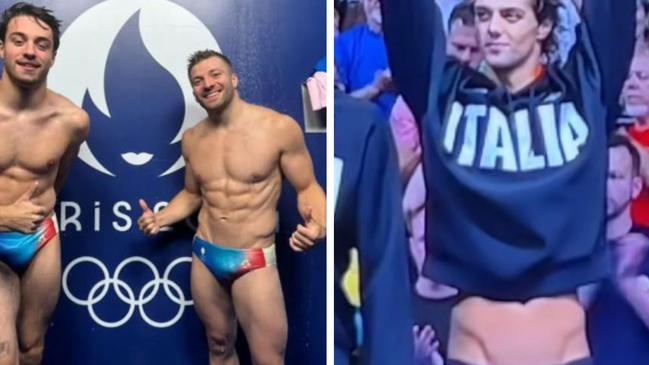
Olympics
Don't miss out on the headlines from Olympics. Followed categories will be added to My News.
You likely don’t know his name - but you probably know his torso.
Earlier this week, a photo of Italian swimmer Thomas Ceccon went viral after winning a bronze medal in the 4x100m freestyle relay.
It wasn’t for the victory, but instead due to the fact his abs were exposed while waving to the crowd.
A photo of the moment was posted to X with the caption: “This is the sl*ttiest thing a man can do.”
The photo has since received more than 20 million views and has resulted in articles published across the globe, commenting on Ceccon’s body.
It’s just one of the many moments of the Games so far that have seen male Olympians go viral for their physiques.
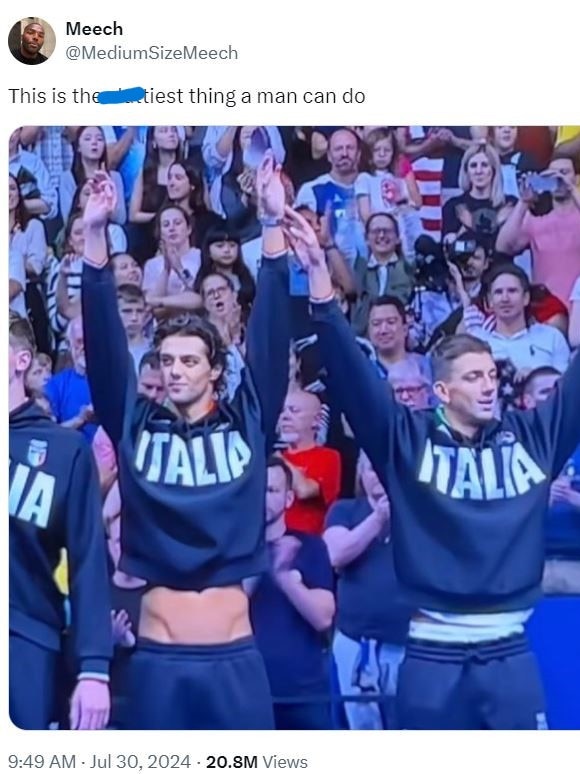
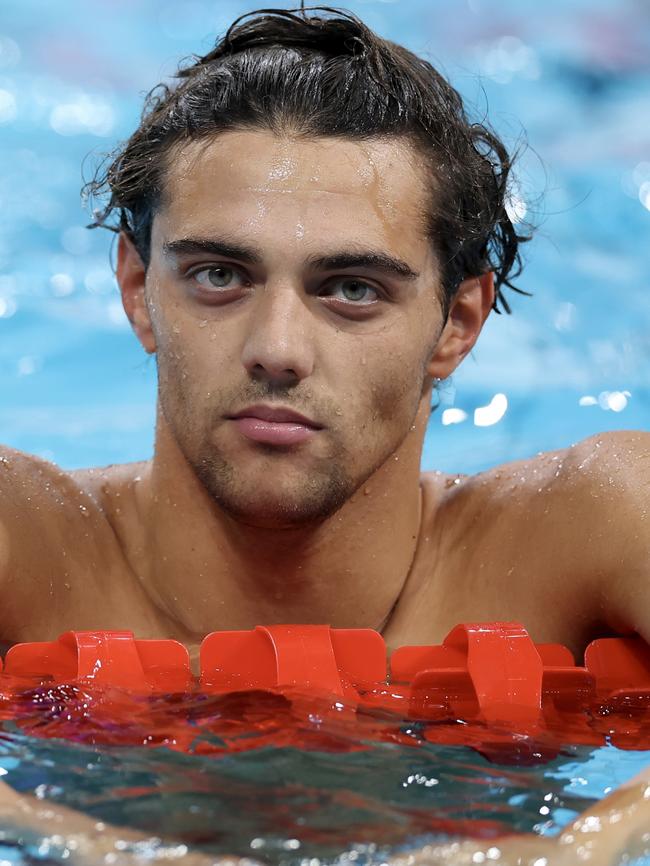
Another was a post about French diving duo Alexis Jandard and Jules Bouyer when they arrived at the Games.
The photo of the pair after a dive wearing Speedos captioned: “Welcome to @Paris2024” has since been viewed more than 13 million times.
It raises the question - is it okay for male athletes to be objectified?
Experts say no.
Swinburne University lecturer Dr Paul Bowell, who is an expert in the social effects of sport, said that while the objectification of female athletes has more “severe ramifications”, the sexualisation of male athletes is also harmful.
“I don’t think the objectification of any bodies is right,” he said.
“There should be a focus on talking about their prowess and the technicality of the sport, we should be talking about their entire physical makeup instead of just how their body looks.”
Dr Bowell also said the use of social media has heightened the “fascination” with the human body and how there is an “opening feeling” of anonymity that allows us to feel we have an “open forum” to speak on people’s bodies.
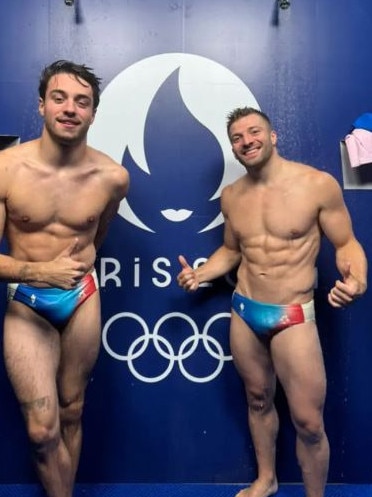
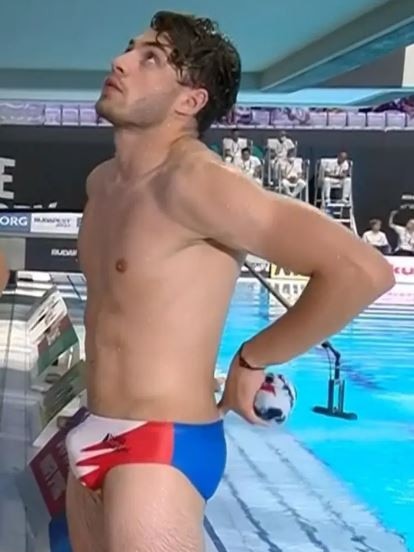
He noted that particularly for female athletes, this commentary detracts from their legitimacy as sportspeople.
“Even with the ancient Olympics you think about the different pictures from Greece, it was about the athleticism of the body and that connection with movement in sport and that’s what gives people cause to want to comment,” he said.
Many online also shared the same sentiment, with social media users calling out the constant objectification of male athletes in this year’s Olympics.
“Sorry to burst your bubble, but it’s incredibly insensitive to see people sexualise everything, including events like the Olympics,” one user wrote.
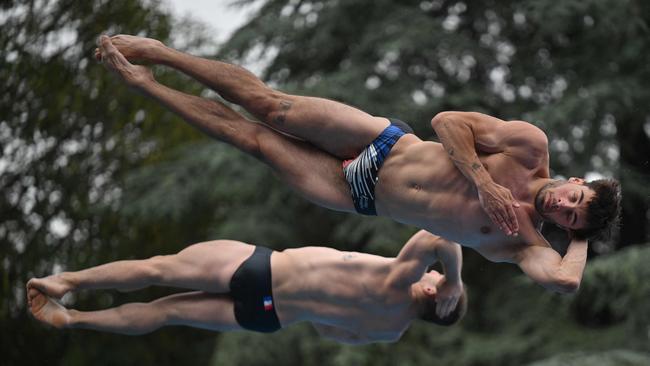
“These athletes have trained their whole lives, and they deserve our respect and admiration, not objectification.”
Another said: “Getting tired of the hypersexualising of the men and the girls at the Olympics.”
Just this week, sports commentator Bob Ballard was sacked from Europort’s Olympic coverage for a sexist comment against four female Aussie swimmers.
After Australian swimming champions Mollie O’Callaghan, Emma McKeon, Meg Harris and Shayna Jack took out gold in the 4x100m freestyle relay, Ballard suggested their delay in leaving the venue was because they were “doing their make-up”.
“Well, the women just finishing up. You know what women are like … hanging around, doing their make-up,” he said.
Ballard’s comment was quickly criticised, with fellow commentator and former Olympic swimmer Lizzie Simmonds immediately branding the remark as “outrageous”.
Ballard issued a public apology after he was pulled from all Olympic coverage by Europort.
Originally published as Expert says remarks on male athletes simply ‘not ok’




